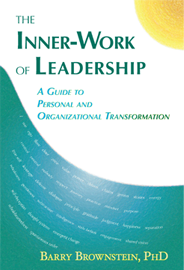At the recently convened conference of North Korea’s Workers’ Party, despot Kim Jong Il’s twenty-something son, Kim Jong Un, was named a four-star general. Kim Jong Il’s sister and her husband were given powerful new posts; speculation is that the couple is being groomed to be the “regents” if Kim Jong Un becomes dictator.
As their economy continues to collapse, even more repression and more deprivation could be the plight of North Koreans. The suffering of the North Koreans could at least go to some good use, if they and the rest of the world are learning from their extreme example.
Unfortunately, it is not clear that this is the case. In his classic work Man’s Search for Meaning, Victor Frankl wrote: “You do not have to suffer to learn. But if you don’t learn from suffering… then your life becomes truly meaningless.”
My children, sophomores in high school, are taking an economics class. From my seat at home, their teacher seems to be enamored with command economies. My children observed that he seems to naïvely think that when command economies have problems, it is because they have the wrong people in charge. Despite many lessons from history, economics, and the contemporary world, this viewpoint is sadly all too common. After all, as Friedrich Hayek observes in his seminal work The Road to Serfdom, many well-meaning people ask: “Why should it not be possible that the same sort of system, if it be necessary to achieve important ends, be run by decent people for the good of the community as a whole?” That command economies are inherently flawed is not understood.
In The Road to Serfdom Hayek explains that it is essential to understand why there can be no such thing as the “good of the community as a whole.” Why not? Hayek writes:
The “social goal” or “common purpose for which society is to be organized is usually vaguely described as the “common good”, the “general welfare”, or the “general interest”. It does not need much reflection to see that these terms have no sufficiently definite meaning to determine a particular course of action. The welfare and happiness of millions cannot be measured on a single scale of less or more. The welfare of the people, like the happiness of a man, depends up on a great many things that can be provided in an infinite variety of combinations.
Let’s consider, for example, food. If you lived in the former Soviet Union—with their centrally planned command economy—very fatty sausage, cabbage, potatoes and vodka were about the only “foods” readily and reliably available. Those whose tastes and values led them to prefer fresh fruits, vegetables, whole grains, and fish were simply out of luck. Yet, for those who have been reduced to eating tree bark in North Korea, even in the diet in the former Soviet Union would seem like a cornucopia.
Since there is no majority to agree on a specific plan to promote a non- existent “common interest,” Hayek explains in The Road to Serfdom that “the worst get on top” in a centrally planned economy. The “worst” will take advantage of the fact that “agreement” can be achieved by focusing on an external enemy:
It seems to be an almost a law of human nature that is easier for people to agree on a negative program—on the hatred an enemy, on the envy of those better off –than on any positive task. The contrast between the “we” and the “they”, the common fight against those outside the group, seems to be an essential ingredient in any creed which will solidly knit together a group for common action. It is consequently always employed by those who seek, not merely support of a policy, but the unreserved allegiance of huge masses.
As I have been writing about in this blog, we see this splintering in contemporary America. There is no possible way to gain agreement about the course of action concerning bailouts or health care or you name it. There is no agreement because there is no common good. Many Tea Partiers, Republicans, and Democrats speak in contemptuous “we” and “they” terms about each other. A trade war against China is brewing; yesterday the House of Representatives passed legislation that would label the Chinese currency as fundamentally undervalued and, as such, could be labeled an illegal export subsidy.
If our economy continues to deteriorate and politicians continue to seek centrally planned solutions, further political splintering around “we” and “they” will be the consequence. Politicians on all sides of the political spectrum are putting forth centrally planned solutions, and none of their solutions will ever work. To be sure, a centrally planned economy in America would almost certainly be more benign and less extreme than the one we see in North Korea. Yet, it would be doomed to the same failure. In his seminal essay “The Use of Knowledge in Society,” Hayek explained why:
…the knowledge of the circumstances of which we must make use never exists in concentrated or integrated form but solely as the dispersed bits of incomplete and frequently contradictory knowledge which all the separate individuals possess. The economic problem of society is thus not merely a problem of how to allocate “given” resources—if “given” is taken to mean given to a single mind which deliberately solves the problem set by these “data.” It is rather a problem of how to secure the best use of resources known to any of the members of society, for ends whose relative importance only these individuals know. Or, to put it briefly, it is a problem of the utilization of knowledge which is not given to anyone in its totality.
In other words, it doesn’t matter how honest, how well-intentioned, how kind-hearted a politician or planner is. The knowledge they need to command an economy is impossible to obtain. There is no common good, there is no way to centralize knowledge—these are two timeless lessons that Nobel laureate Friedrich Hayek taught. We continue to ignore his lessons at our own peril. Many continue not to learn from the suffering all around us.
If you are wondering, at home, my children are supplementing their high school economics textbook with The Road to Serfdom, “The Use of Knowledge in Society,” Russell Roberts’s The Price of Everything, and Matt Ridley’s Rational Optimist.



Barry,
That was a potent prescription for patients of the coming economic depression. A dose of Hayek to understand WHY they suffer, and a dose of Frankl for HOW to cope with it. Both authors are MUST reading. Thanks for the other recommendations as well.
Professor Brownstein,
Spot on post. I think it boils down to arrogance on behalf of our elected leaders. As you said in your post, the knowledge needed to command an economy is impossible to obtain, it’s too dispersed to be consolidated in a few individuals. This administration is filled with too many academics who are considered the ‘best and brightest’ of our tenured Ivy League professors. Why wouldn’t they believe that they can make economic decisions better than the hoi polloi masses? In addition, most of our legislators are career politicians who have never: poured concrete, fixed a carburetor, made payroll, dealt with clients or performed any other activity that 99.9% of the population does on a daily basis. How can they fully understand the full impact of the laws they pass?
Thanks Steve for the kind words.
Mike,
Your diagnosis of the mindset of those think they should plan for us us is dead-on.